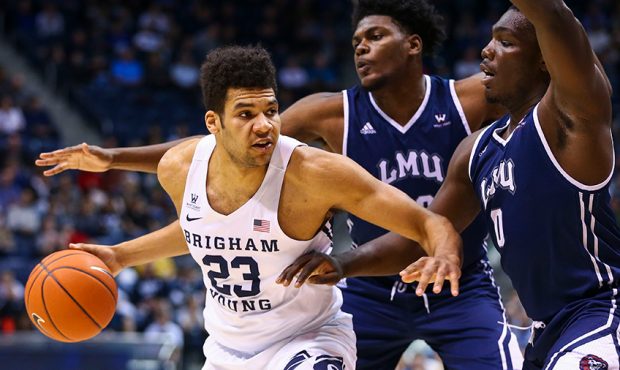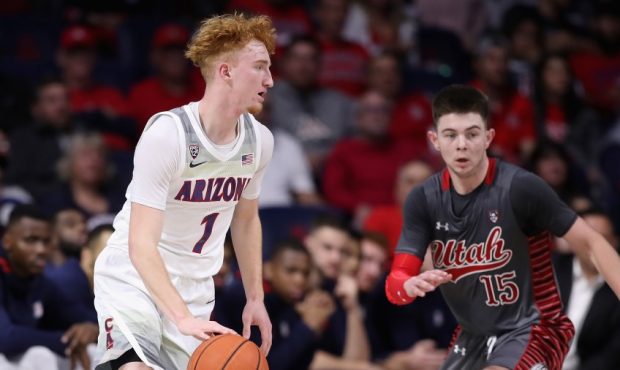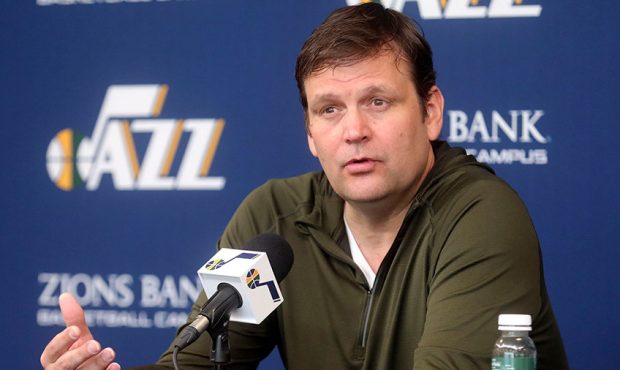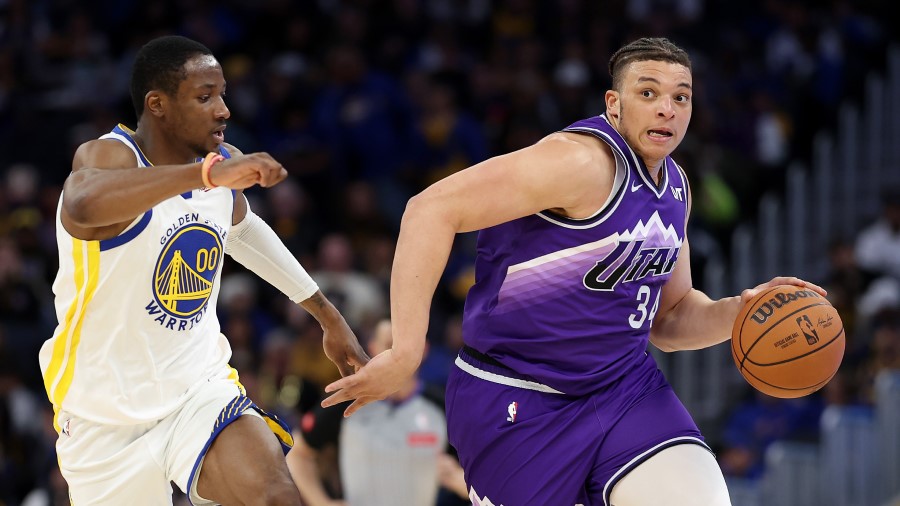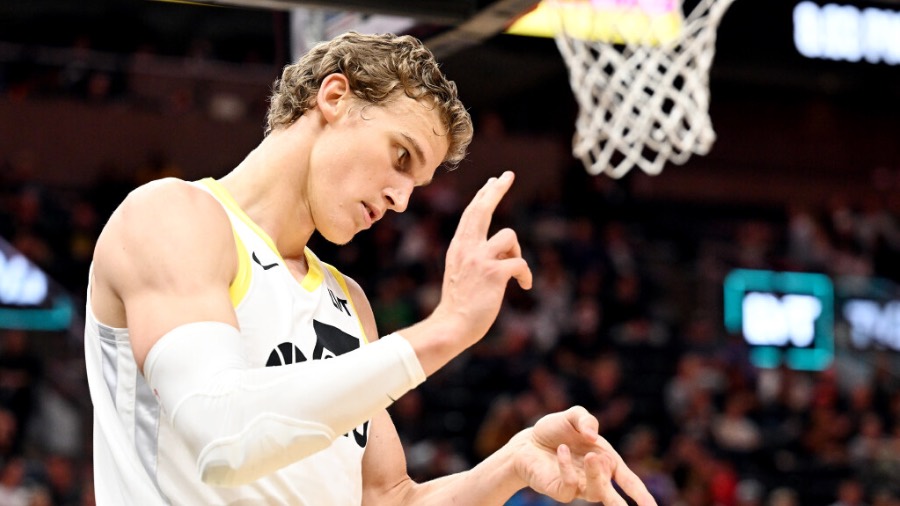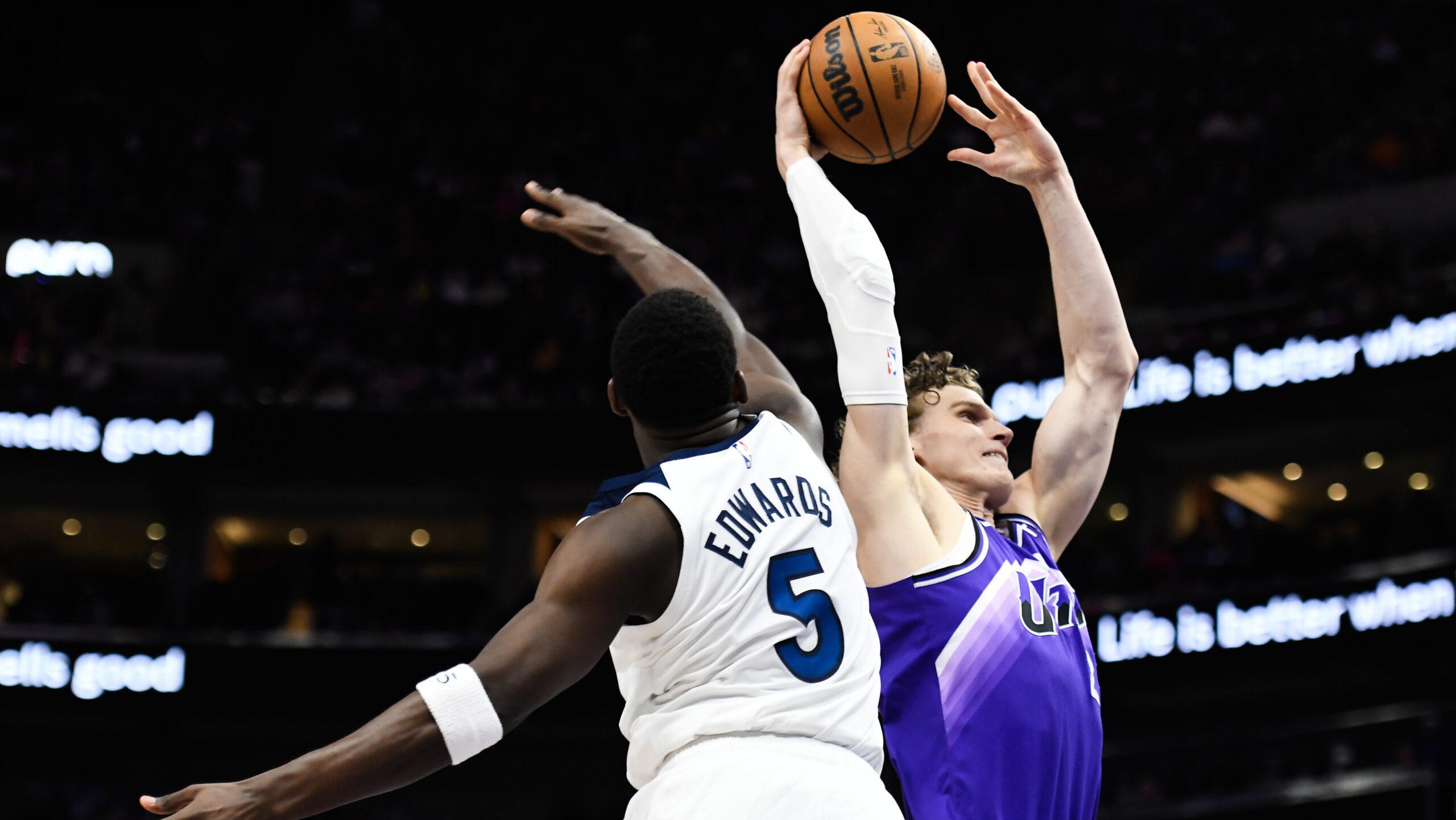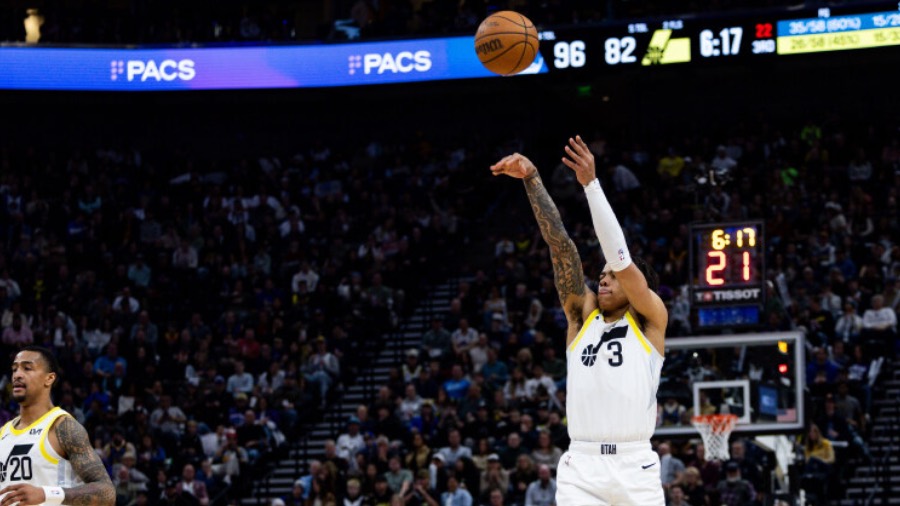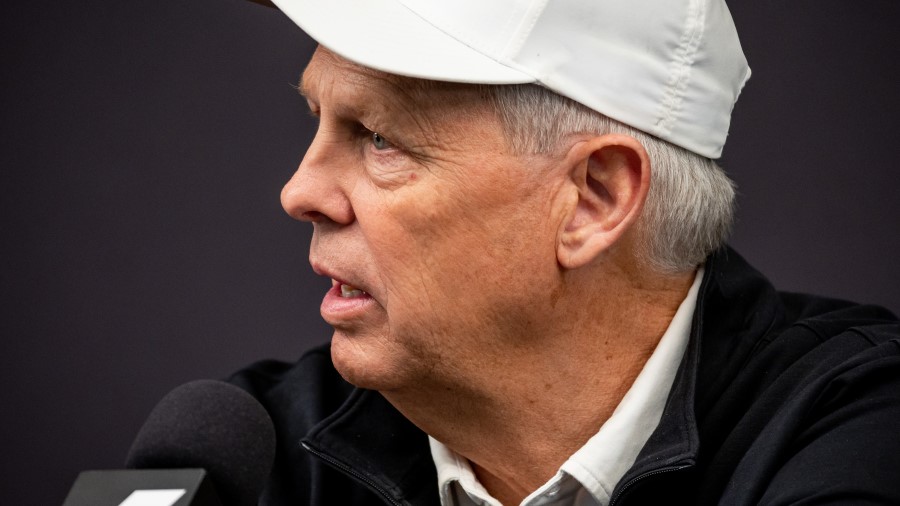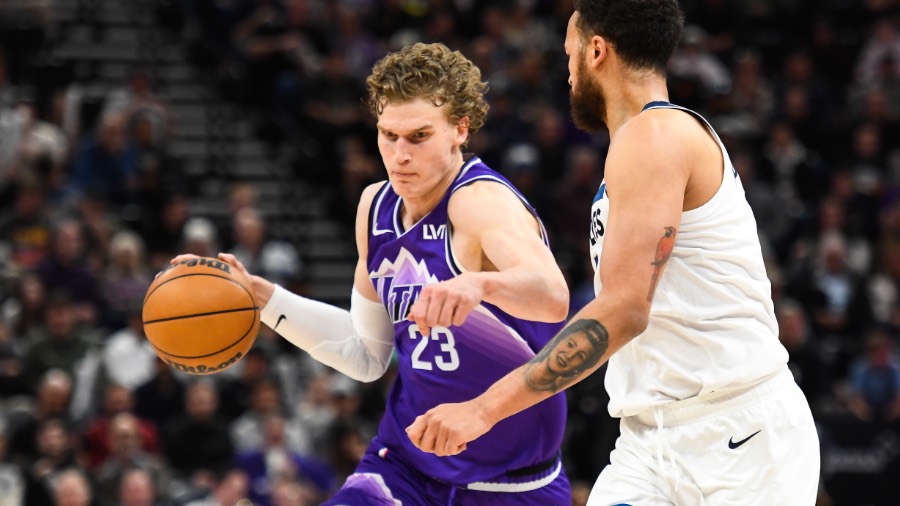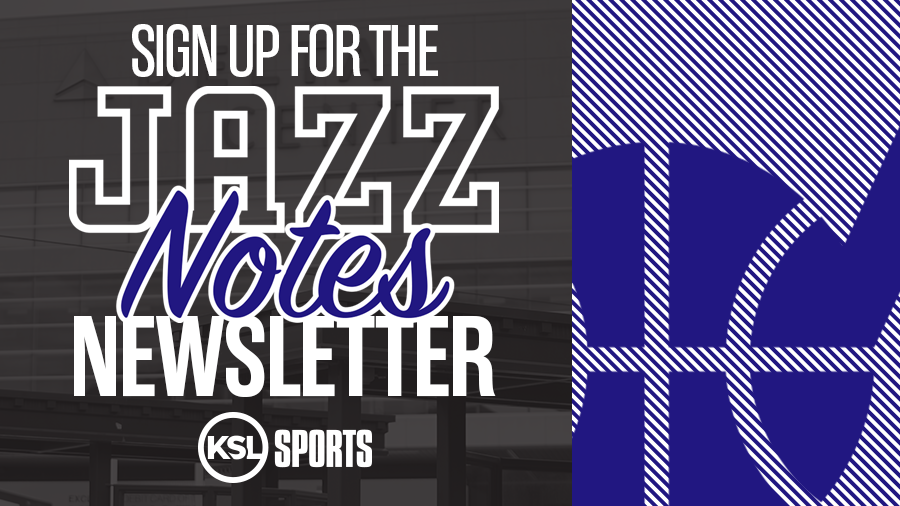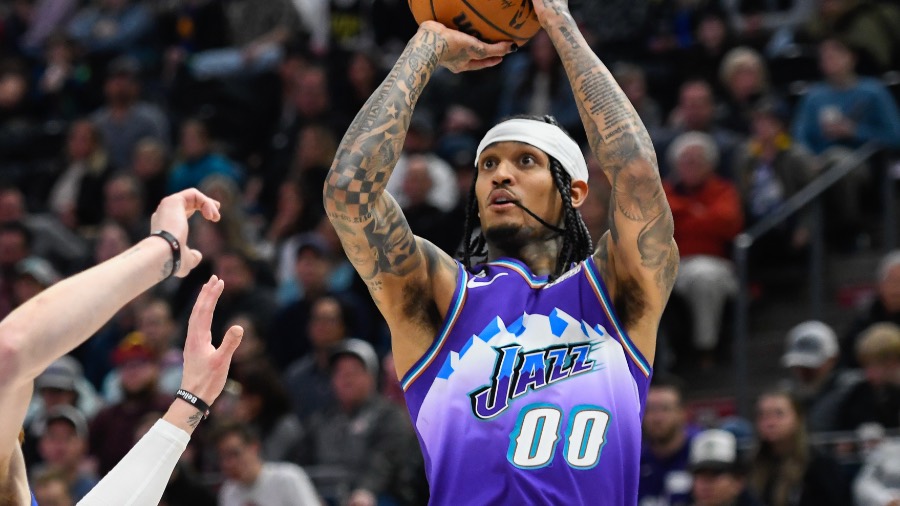Utah Jazz And The History Of The 23rd Pick
Sep 14, 2020, 3:35 PM | Updated: Nov 12, 2020, 11:43 am
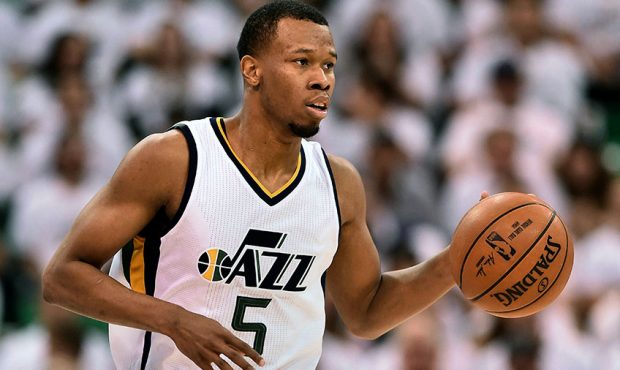
(Photo by Gene Sweeney Jr/Getty Images)
(Photo by Gene Sweeney Jr/Getty Images)
SALT LAKE CITY, Utah – The Utah Jazz have the 23rd pick in the 2020 NBA draft. It’s the only pick the team currently owns in the draft after shipping their second-round selection to Cleveland in exchange for Kyle Korver in 2018. With the team currently slated to have just once chance to find a difference-maker in November’s draft, there is value in looking back at the history of the 23rd pick to find what type of player the Jazz should expect to be available.
The pick is of particular importance for the Jazz, as they traded away each of their last two first-round picks (Darius Bazley and Grayson Allen), plus next year’s pick to the Memphis Grizzlies in exchange for guard Mike Conley. As a result, the team is already lacking high-level young talent on cost-controlled contracts with Donovan Mitchell and Rudy Gobert fast approaching expensive contract extensions with the organization.
That means the Jazz need to draft a solid contributor to help balance their salary cap sheet or to find a player that shows enough promise to help the front office improve the roster via trade down the road as the ability to sign free agents will be limited with Gobert and Mitchell’s enormous cost.
The @UtahJazz dropped to the 23rd pick in the NBA draft after losing a set of tiebreakers today.
But the Jazz are in a good position to take the best player available in the draft. #TakeNote https://t.co/SGOiPKI0hL
— KSL Sports (@kslsports) August 17, 2020
The Success Rate of the 23rd Pick
Starting in the year 2000, and working through 2019, coincidentally both years the Jazz owned the 23rd pick, there’s a pretty strong picture painted of the type of player available later in the first round. Luckily for the Jazz, it’s a relatively rosy outlook.
Over the last 20 years, there’s truly only one player selected with the 23rd pick that can be deemed a bust. That honor belongs to Sergei Monia who was drafted in 2004 and played just 26 games overall for the Portland Trail Blazers before returning to Europe. Brandon Armstrong was drafted by the New Jersey Nets in 2001 and played in the league for three seasons before spending 12 years overseas.
With the 23rd pick, we have selected Darius Bazley. pic.twitter.com/PxWgmFCCq6
— utahjazz (@utahjazz) June 21, 2019
Including Monia and Armstrong, dating back to 2015 (players who would no longer be on rookie contracts in 2020) the average playing career from the 23rd pick has lasted at least seven years. That includes four players who are still in the NBA and will up that average. That means not only do players survive the first four years of the rookie deals, they overwhelmingly last long enough to sign contract extensions as proven NBA players.
Each of the last four 23rd picks are still in the NBA on their rookie contracts but are averaging at least 13 minutes per game for their careers, meaning they have established themselves as true rotational players and will also likely see extended NBA careers.
Jazz History of the 23rd Pick
The Jazz have had a surprisingly rich history selecting with the 23rd pick. Since 2000, the Jazz have owned the pick four times, three of which resulted in players who the Jazz kept, and once when they traded the pick.
In 2000, with the sun setting on the John Stockton and Karl Malone era in Utah, the Jazz drafted DeShawn Stevenson straight out of high school to be the next face of the franchise. Stevenson derailed his promising career after committing statutory rape as a rookie with the Jazz where he played the first three and a half seasons of his career.
Let's not forget just how vital DeShawn Stevenson was in 2011!#MFFL | 📺FSSW pic.twitter.com/MnVUF0ouLd
— FOX Sports Southwest (@FOXSportsSW) May 14, 2020
In total, Stevenson spent 13 seasons in the NBA and was a starting member of the 2011 NBA Champion Dallas Mavericks squad.
In 2008, the Jazz drafted Kosta Koufos, the highly touted freshman product out of Ohio State who spent two seasons in Utah before being shipped to the Minnesota Timberwolves in exchange for Al Jefferson.
Koufos played 11 seasons in the NBA as a backup center before spending last year with CSKA Moscow.
The Jazz drafted Rodney Hood in 2014 and the Duke star quickly turned into an important contributor on the roster. Hood started 21 games for the Jazz as a rookie become becoming a full-time starter during his second and third seasons in the NBA. The Jazz traded Hood in 2018 to make room for the quickly emerging Mitchell on the roster.
How do we love Rodney Hood?
Let us count the ways… 😍😍😍 pic.twitter.com/d1d15cxgCw
— utahjazz (@utahjazz) January 18, 2018
Hood spent last season with the Portland Trailblazers in before tearing his Achilles tendon in December.
In 2019, the Jazz traded the rights to Darius Bazley as a part of a package to land Mike Conley.
Best 23rd Picks of the Last 20 Years
The Jazz history of solid, albeit less than spectacular production from the 23rd pick falls in line with the rest of the NBA. Steven and Koufos played the second and third most games among players drafted in the slot since 2000 which hasn’t produced an All-Star in the new century.
The Detroit Pistons selected Tayshaun Prince with the 23rd pick in the 2002 NBA draft. Prince appeared in 1017 games over 14 NBA seasons and helped lead the Pistons to the championship in 2004. The multi-tool forward may be the best plate in NBA history to never appear in an All-Star game.
The Block.
14 years (!) ago on May 24, 2004, Tayshaun Prince rejected Reggie Miller’s shot. pic.twitter.com/KKw8exYmr2
— Brad Galli (@BradGalli) May 25, 2018
Current Brooklyn Nets forward Wilson Chandler has appeared in the fourth most games from a 23rd pick since 2000. Chandler was an above-average role player throughout his career, though he saw limited minutes in Brooklyn this season.
Travis Outlaw, Omri Casspi, Francisco Garcia, Solomon Hill, Rondae Hollis-Jefferson, OG Anunoby, Nikola Mirotic, and former Jazzman Trevor Booker are other former 23rd picks who have had or continue to have impactful careers in the NBA.
Overall, it’s unlikely the Jazz find a future All-Star with the 23rd pick in the draft. Historically, only three players have become All-Stars with the pick (Alex English, World B. Free, Brain Taylor), however, the odds of finding a productive role player tilt in the Jazz favor.
The Jazz would love to find a future third star to pair with their current core, though a player that can earn rotational minutes, and perhaps even become a full-time starter would be a strong addition to the existing roster. Looking over the last 20 years, checking the majority of those boxes is a reasonable expectation for the Jazz come November.

